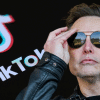Is Gen-Z really ageing faster than earlier generations?

Generation Z, or Gen-Z, is the generation born between 1997 and 2012. It is perhaps the most age-aware generation in history. Growing up chronically online gave us the ever-present opportunity to compare ourselves to other people, whether it be real people or celebrities and influencers.
The result was unprecedented seriousness about our appearance and any possible threats of deterioration to it. Beyond social media, we were the first generations to have our existence frequently documented from day 1, which gave us another opportunity to compare our present and younger selves. Companies quickly multiplied this awareness and fear, packaged it, and sold it back to us. In 2024, the global skincare industry is estimated to reach a net value of USD 186 billion.
Currently, we are encountering a collective crisis related to the matter. There is a panicked frenzy on social media, predominantly on TikTok, that gen-z is ageing much faster than previous generations. This feels like a befitting follow-up crisis to the recent bleak and destructive preoccupation with age-up and age-down filters on TikTok.
The source of the chaos was most likely a TikTok video, which amassed over 22 million views, by 26-year-old Jordan Howlett, who you may know better as the guy who reveals fast food secret recipes or ordering hacks, always filming them in front of his bathroom mirror. In it, he claims that Gen-Z is ageing rapidly, and describes a series of incidents where he was mistaken for being much, much older. The funniest story featured a meeting with Dwayne "The Rock" Johnson, 52, where the celebrity mistook the TikToker for being the same age as himself. In another viral TikTok that significantly fuelled this discourse, captioned "Bye digging my own grave," Taylor Donoghue, 23, feigns outrage at commenters who thought she might be in her early 30s.
The two important questions at the heart of the discourse are if it is really happening or if it is all in our heads.
In Jordan's case, it does seem to be happening, based on how the people he meets and his fans on social media find his real age hard to believe. In his video, he claims "it is mainly because of the stress."
I agree, there is an abundance of supporting facts on why Gen-Z may be more stressed than previous generations.
Every other day we see a news headline on social media claiming something along the lines of Gen-Z being the most hopeless, anxious, or depressed generation. The articles generally discuss how Gen-Z is disillusioned to the fairness of the political and economic systems in practice and lives with a sense of impending doom.
Being a part of Gen-Z myself, I never doubted the factual accuracy of these claims.
Gen-Z around the world is more aware of themselves relative to previous generations. The global crises are far from minor. It is impossible not to be disillusioned to the brokenness of the systems we live in from witnessing any one of the current events.
However, unlike the previous generations, the bliss of ignorance does not exist for Gen-Z. In the age of information and technology, Gen-Z has seen a lot more people and information at any age compared to someone at the same age at an earlier generation, by virtue of the constant onslaught of content at their disposal. On top of this, there is a trend of people entering the workforce at increasingly younger ages, an additional source of stress and exposure that many members of the Gen-z received earlier than members of earlier generations.
An ironic source of added stressor may be the stress we've been feeling regarding getting older, contributing to ageing us even faster. The oldest members of the Gen-Z are twenty-seven years old, a generally early age for any physical symptoms of ageing to appear. However, influenced by the marketing claims of 'preventative ageing', many are seasoned users of anti-ageing skincare and cosmetic procedures, and that's where some theorise it may have backfired.
While millennials learned how to use good skincare techniques in their late teens and 20s, Gen-Z may have been overexposed to the techniques and started using products incorrectly, causing them to age prematurely, opined a number of experts to the Daily Mail, a UK-based tabloid newspaper.
However, there is no way as of yet to factually state if a large percentage of this generation of people is displaying premature signs of ageing, or if it's all just a scare and the few social media personalities are in the minority.
A common consensus in the prevalent discourse is that the panic is simply a result of the older members of the Gen-Z experiencing quarter-life crises. The oldest members have reached a common and natural age for the first signs of ageing such as forehead and expression lines to appear, and the difference this time is that the generation experiencing it now is more aware and critical of these changes.
"There is a sense in which young people have forgotten what faces look like," said Renee Engeln, 47, a Psychology professor at Northwestern University and the director of the Body and Media Lab there, to The New York Times.
Can we blame them? Gen-Z grew up endlessly scrolling through idealised versions of their own faces and the faces of others, Professor Engeln said.
It is also likely that there is nothing new to the age anxiety we are feeling. Every generation before us has felt it in their mid-20s, but this time, we are unprecedentedly interconnected and public, causing our crises to create widespread confusion and theories.
A particularly vulnerable group on whom the prevalence of this discussion will create negative repercussions is the youngest members of Gen-Z and the members of the generations that come after it. Already, skincare brands are targeting groups as old as 11-year-olds, selling them the philosophy of "preventative ageing." It is not uncommon to come across videos of pre-teens filming their 30-minute, 15-step skincare routines.
"The sooner they can get young girls worried about another thing that might go wrong with their appearance, the more they can sell," Engeln says. "And if you can start selling anti-ageing creams earlier and earlier, it's a way to grow market share and to build loyalty early to your brand," shared Renee.
According to an article in The Wall Street Journal, Bubble Skincare, a company that sells hydrating moisturisers and eye-brightening creams, works with about 2,000 13 to 14-year-old youth ambassadors.
To me, this paints an ugly picture of greed, stolen childhoods, and unfathomable long-term damages.
As it is still too early to definitively come to an answer on whether Gen-Z is really ageing unnaturally and if so, what is causing it, all that can be done is to wait and see. No longer promoting the discourse in the time being is the only constructive approach, to personally prevent the ironic effects of accelerated ageing of age anxiety, and to be responsible for the repercussions of this discussion on the youngest amongst us.
Amrin Tasnim Rafa is a sub-editor at Campus, Star Youth, and Rising Stars.

 For all latest news, follow The Daily Star's Google News channel.
For all latest news, follow The Daily Star's Google News channel. 








Comments